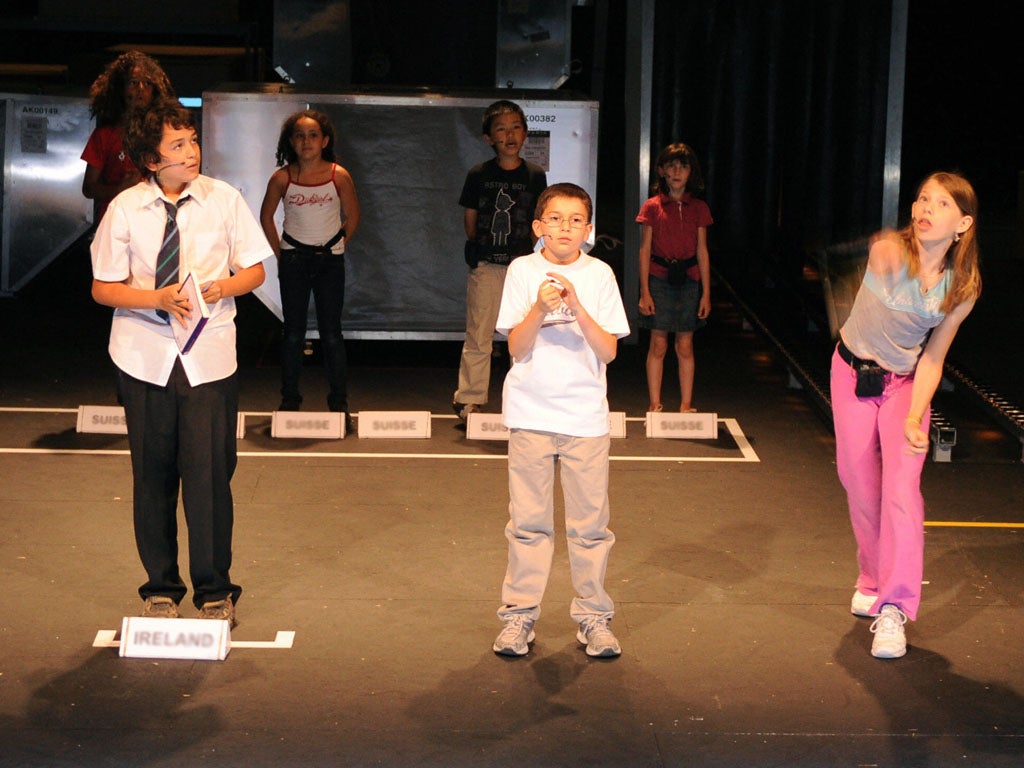Our lazy and ignorant overuse of a handful of words: Discuss swear words in school and diminish their shock value
A mother who complained about a school play containing 400 swear words was subjected to more foul language from teachers who disagreed on Mumsnet

Is there really a child in the country over about five who doesn’t know the half dozen or so most emotive and potentially offensive words in English? I don’t think so. And if the young mothers screaming angrily at their toddlers at my local railway station is anything to go by, then many under-5s must do too. You hear this language on the streets all the time as well as casually and continually used in conversation by many articulate, educated people.
The point is does it matter? One mother, Geraldine Stockford, clearly thinks it does because she complained on Mumsnet that her daughter, 14, was studying a play, full of such language, at school. And she incurred the wrath, laden with exactly the language she was objecting to, from teachers with, it seems, an enormous ideological hobbyhorse to ride. Well, I’ll come to the issue of plays and teacher behaviour in a minute. Can we think about what language is and what it’s for first?
Words and language are there to be used. It is illogical and somewhat ridiculous for there to be words which we all know but are not supposed to use. And these are not, by the way, ‘swear words’ which are, strictly speaking, to do with oaths. They are generally very old words relating to bodily functions, some of which have, over centuries, become taboo for some (many – but fewer as time goes on?) people.
The usual slang word for urine, still often regarded as unacceptable, is used in the King James Bible, – see Isaiah chapter 36 verse 12 for proof – because it was the standard, simple word in 1611. The translators opted for ‘dung’ for excrement though, because that other word was already taboo. And as for that famous one which dates from at least the 15th century and means, in common parlance, to have sexual intercourse – I’m carefully avoiding those absurd asterisks here – whyever not teach children about its history and changing attitudes to it over time? It is, like it or not, part of our language heritage.
And if teachers were to approach all this calmly, rationally and intelligently and treat taboo language as an interesting subject to discuss, then I suspect the shock value would be, to an extent, dispelled and the words that so many people get so vexed about would shed some of their allure.
What bothers me far more is the weary, lazy, boring, ignorant overuse of a handful of words when English has the biggest lexicon in Europe and there are so many other rich, fascinating and expressive words people could use. So I have some sympathy with Mrs Stockford who has counted 218 uses of the word she doesn’t want her daughter exposed to in Vivienne Franzmann’s 2011 play, Mogadishu.
Now plays are very much my thing. As Education and Training Editor at The Stage I see hundreds every year and I know that Vivienne Franzmann is a fine playwright simply trying to create characters who speak as she knows they would in real life. But oh how dull it can get. I have been reduced sometimes at drama school student showcases, like Mrs Stockford, to counting the occurrences of a single word – that word - because it becomes so tediously repetitive. That is the reason that, if I were still teaching in a secondary school I would probably opt for something rather than Mogadishu, although it’s an interesting, award winning play.
By far the most shocking aspect of this whole matter is the lazily abusive language of the teachers who took Mrs Stockford aggressively to task on Mumsnet.
Everyone is entitled to express an opinion and Mrs Stockford is – wrongly or rightly – merely trying to protect her daughter. If teachers think it’s acceptable to behave with shocking discourtesy and arrogance just because they have a different view then heaven help the students they teach. They are, I contend, a far worse threat to young people than a few ancient and samey monosyllables.

Join our commenting forum
Join thought-provoking conversations, follow other Independent readers and see their replies